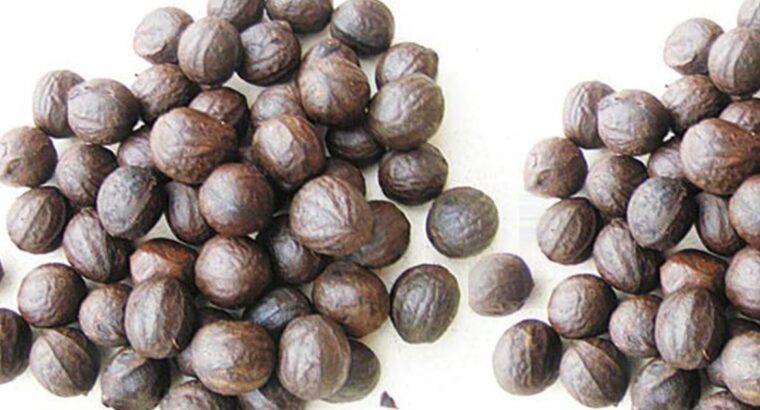The Ultimate Guide to Walnut Farming in Nigeria: From Seed to Profit

Walnut farming in Nigeria is a highly lucrative and rewarding agricultural venture. With the global and local demand for walnuts rising due to their nutritional benefits, many Nigerian farmers are considering walnut cultivation as a profitable investment. The country’s climate and soil conditions make it an ideal location for walnut farming.
This guide provides a step-by-step approach to walnut farming in Nigeria, including insights on planting, maintenance, harvesting, and market visibility to maximize income.
Step-by-Step Guide to Walnut Farming in Nigeria
1. Choosing the Right Walnut Variety
Walnuts come in several varieties, each suited to specific climates and soil types. The most common varieties suitable for Nigeria include:
- African Walnut (Tetracarpidium conophorum) – Native to West Africa, widely cultivated in Nigeria for its medicinal and nutritional properties.
- English Walnut (Juglans regia) – Though not native to Nigeria, it can be grown in cooler regions with proper care.
- Black Walnut (Juglans nigra) – Used mainly for timber and specialty products, but requires deep and fertile soils for optimal growth.
2. Selecting the Ideal Location
Walnut trees thrive in well-drained, deep loamy soil with a pH level between 6.0 and 7.5. The ideal climate should have distinct dry and wet seasons, with moderate temperatures for proper tree development. Suitable states for walnut farming in Nigeria include:
- Ogun State
- Ondo State
- Edo State
- Cross River State
- Benue State
3. Land Preparation and Planting
- Soil Preparation: Conduct soil testing to determine nutrient levels and pH adjustments.
- Spacing: Trees should be planted 40-50 feet apart to allow proper canopy development.
- Planting: Best done in late rainy season or early dry season when the soil is moist but not waterlogged.
- Propagation Methods: Walnut trees can be propagated through seeds or grafting, with grafted varieties yielding faster results.
4. Irrigation and Fertilization
- Watering: Young trees require consistent watering, especially in dry conditions. Drip irrigation is highly recommended for commercial walnut farming in Nigeria.
- Fertilization: Apply balanced fertilizers with nitrogen, phosphorus, and potassium to promote growth. Organic compost and manure can also be used to enrich the soil.
5. Pruning and Disease Management
- Pruning: Necessary in the early years to shape the tree and encourage strong branch structure.
- Common Diseases: Watch out for walnut blight, root rot, and anthracnose. Use organic or chemical treatments accordingly.
- Pest Control: Protect trees from rodents and insects like walnut husk flies using organic pesticides and good farm hygiene practices.
READ MORE: Cattle Rearing in Nigeria for Beginners: How to Start and Succeed
6. Harvesting and Post-Harvest Processing
- Harvesting: Walnuts are ready for harvest when the outer husk splits and falls off naturally. In Nigeria, the best harvest period is between August and November.
- Drying: Proper drying is essential to prevent mold and preserve quality. Sun drying is common, but using mechanical dryers can improve efficiency.
- Storage: Store in cool, dry conditions or refrigerate for extended shelf life. Proper packaging ensures better market value.
Review of Walnut Farming Profitability in Nigeria
Investment Costs
- Initial Land Preparation: ₦1,000,000 – ₦3,000,000 per hectare
- Saplings and Plantation: ₦500,000 – ₦1,500,000 per hectare
- Irrigation and Maintenance: ₦300,000 – ₦1,000,000 per year
Expected Yield and Revenue
- Mature Trees Yield: 2,500 – 4,500 kg per hectare
- Market Price: ₦800 – ₦2,500 per kg (varies by region and demand)
- Annual Revenue: ₦2,000,000 – ₦10,000,000 per hectare (after maturity)
Break-even Point
Walnut trees take 5-7 years to reach full production, but they offer long-term profitability with consistent yields for up to 50 years.
Maximizing Visibility and Income in Nigeria
1. Establishing Market Presence
- Local Markets: Supply to Nigerian markets in Lagos, Abuja, Port Harcourt, and other major cities.
- Wholesale Distribution: Partner with food manufacturers, restaurants, and supermarkets.
- Export Opportunities: Nigeria has the potential to export processed walnuts to international markets like Europe and the Middle East.
2. Value Addition
- Walnut Oil: A premium product used in cooking and skincare, with high market demand.
- Processed Nuts: Roasted, flavored, or packaged for high-end consumers.
- By-products: Walnut shells can be used for biofuel, cosmetics, and animal feed.
3. Branding and Promotion
- Social Media Marketing: Utilize Instagram, Facebook, and YouTube for brand awareness.
- Agritourism: Organize farm visits, walnut-picking events, and training workshops.
- Certifications: Obtain organic or non-GMO certifications to attract premium buyers and international markets.
Conclusion
Walnut farming in Nigeria is a long-term investment that can yield significant returns when managed effectively. By selecting the right variety, maintaining proper care, and leveraging modern marketing strategies, Nigerian farmers can maximize their profitability and establish a successful walnut farming business.
Are you ready to start your walnut farming journey in Nigeria? Let us know in the comments below!

Leave your comment